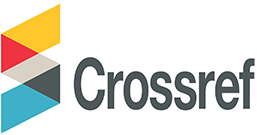The Impact of Artificial Intelligence on the Legal System: Benefits, Risks, Legal, and Ethical Challenges
DOI:
https://doi.org/10.69760/aghel.0250040012Keywords:
Artificial intelligence, Technology, law, benefits, risks, responsibilityAbstract
The role of artificial intelligence (AI) in the legal field holds significant potential for development. The application of this technology can make the legal system faster, more accurate, and more accessible. However, the use of AI also introduces ethical, legal, and social issues. In the future, appropriate legislative initiatives and ethical regulations must be established to ensure that the use of AI in the legal domain aligns with the principles of justice, transparency, and the rule of law. From this perspective, the article explores the development of AI, its role in the legal field, how this technology will impact the legal system in the future, its benefits and risks, and the associated ethical and legal issues.
References
Artificial Intelligence Strategy of the Republic of Azerbaijan for 2025–2028. (2025, March 19). Government of the Republic of Azerbaijan.
Khalilov, Y., & Mirzazade, Y. (2025). The Presumption of Innocence in the Context of International Legal Instruments on Human Rights. Acta Globalis Humanitatis et Linguarum, 2(2), 259-264.
Huseynov, T., Khalilov, Y., Aliyev, H., & Abisov, S. (2025). Circumstances that Prevent an Act from Being a Crime. Porta Universorum, 1(3), 29-36.
Qədimov, Əli, & Xəlilov, Y. (2025). The Legal and Institutional Framework of State Investment Programs: Azerbaijan in Comparative Perspective. Global Spectrum of Research and Humanities , 2(4), 59-68. https://doi.org/10.69760/gsrh.0250203004
Khalilov Farman, Y., & Qadimov Tofiq, A. (2025). The necessity of constitutional reforms in the context of an electronic society and the legal foundations of the ‘smart constitutionalism’. Porta Universorum, 1(5), 13-23. https://doi.org/10.69760/portuni.0105002
Council of Europe. (2024, September 5). Framework Convention on Artificial Intelligence and Human Rights, Democracy and the Rule of Law. https://www.coe.int/
European Parliament & Council of the European Union. (2016, April 27). Regulation (EU) 2016/679 on the protection of natural persons with regard to the processing of personal data (General Data Protection Regulation). https://eur-lex.europa.eu/
European Commission. (2023, June 8). EU AI Act: First regulation on artificial intelligence. https://digital-strategy.ec.europa.eu/
High-Level Expert Group on Artificial Intelligence. (2019, April 8). Ethics guidelines for trustworthy AI. European Commission.
Integrated Innovation Strategy Promotion Council. (2019, June 11). AI strategy 2019: AI for everyone – People, industries, regions and governments.
National Science and Technology Council. (2023, May). National Artificial Intelligence Research and Development Strategic Plan (2nd ed.). Select Committee on Artificial Intelligence.
National AI Initiative Act of 2020, Pub. L. No. 116–283, § 5001, 134 Stat. 3388 (2021).
Parker, L. (2022, June 29). National AI Initiative Act of 2020 (NAIIA). National AI Initiative Office, Executive Office of the President of the United States.
Republic of Korea. (2019, December). National strategy for artificial intelligence. Ministry of Science and ICT.
Russo, L., & Oder, N. (2023, October 31). How countries are implementing the OECD principles for trustworthy AI. OECD. https://www.oecd.org/
World Economic Forum. (2019, March 26). Estonia is building a “robot judge” to help clear a legal backlog. https://www.weforum.org/
Xinhua. (2024, December 5). China launches artificial intelligence platform to boost judicial efficiency. https://www.xinhuanet.com/
Xinhua. (2017, August 1). Full translation: China’s ‘New Generation Artificial Intelligence Development Plan’ (2017). https://www.chinadaily.com.cn/
Downloads
Published
Issue
Section
License
Copyright (c) 2025 Acta Globalis Humanitatis et Linguarum

This work is licensed under a Creative Commons Attribution-NonCommercial 4.0 International License.







